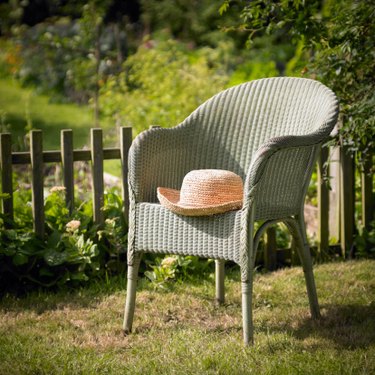
Colorado soils are generally either clay or sand, and are often lacking in organic matter. The best time to fertilize Colorado lawns is between September and November, for the Front Range, and two to three weeks earlier in the mountains. Organic and synthetic fertilizers both work well, although each has potential drawbacks and benefits. Insect and fungus problems are rare in Colorado due to the dry climate; weed and feed products are usually unnecessary.
Nitrogen Fertilizers
Video of the Day
Nitrogen fertilizers provide nitrogen needed for lush, green growth. Apply it at a rate of 1 lb. per 1,000 square feet of lawn in the fall and mid-spring. Nitrogen fertilizers are made from petroleum by-products and break down within a few days to weeks. Nitrogen fertilizers are high in nutrients and may burn grass if over-applied, causing it to turn yellow or brown. Excessive nitrogen fertilizer applications may also leach into ground water, especially in the sandy soils found east of Denver.
Video of the Day
Organic Fertilizers
Colorado gardeners interested in organic fertilizers may use animal manures, treated sewer sludge, poultry feathers or corn gluten to fertilize lawns. These products are often more expensive than synthetic fertilizers and may require more effort to apply, but they break down slowly, lasting longer. They also improve the soil, an important consideration in Colorado, where most soils are poor. Organic fertilizers rarely burn lawns; corn gluten may also prevent weeds from emerging.
Balanced Fertilizers
Balanced synthetic fertilizers contain phosphorus and iron, as well as other micronutrients needed for healthy lawns. Many Colorado soils have a high pH level, which can bind the iron in the soil, making it unavailable to plants. This condition results in yellowing grass or plants and is known as chlorosis. If grass doesn't respond to nitrogen fertilizer, apply a balanced fertilizer containing iron and phosphorus, according to Colorado State University Extension.